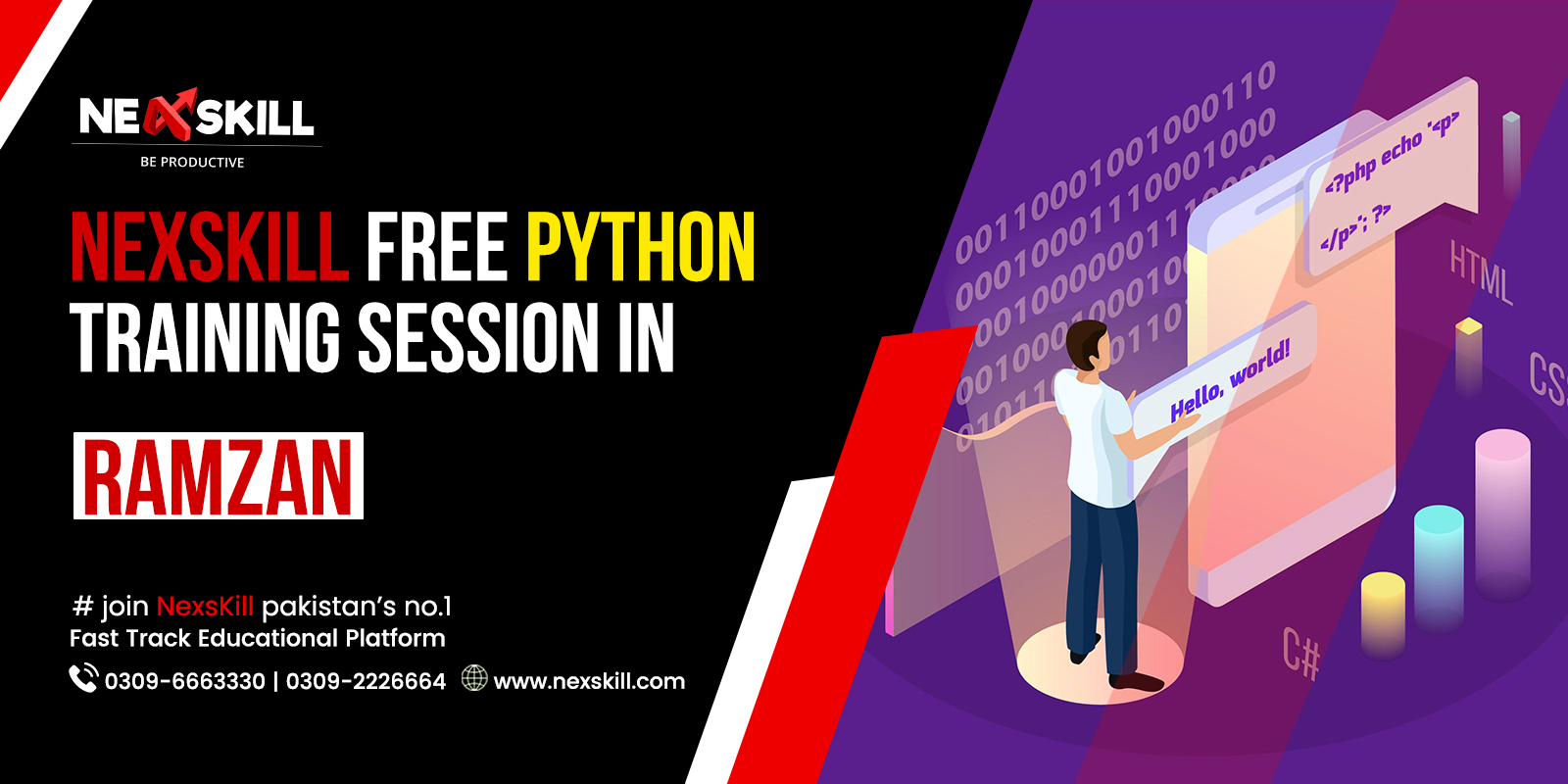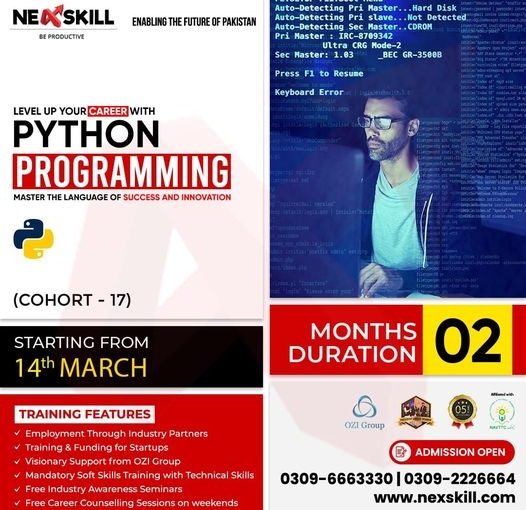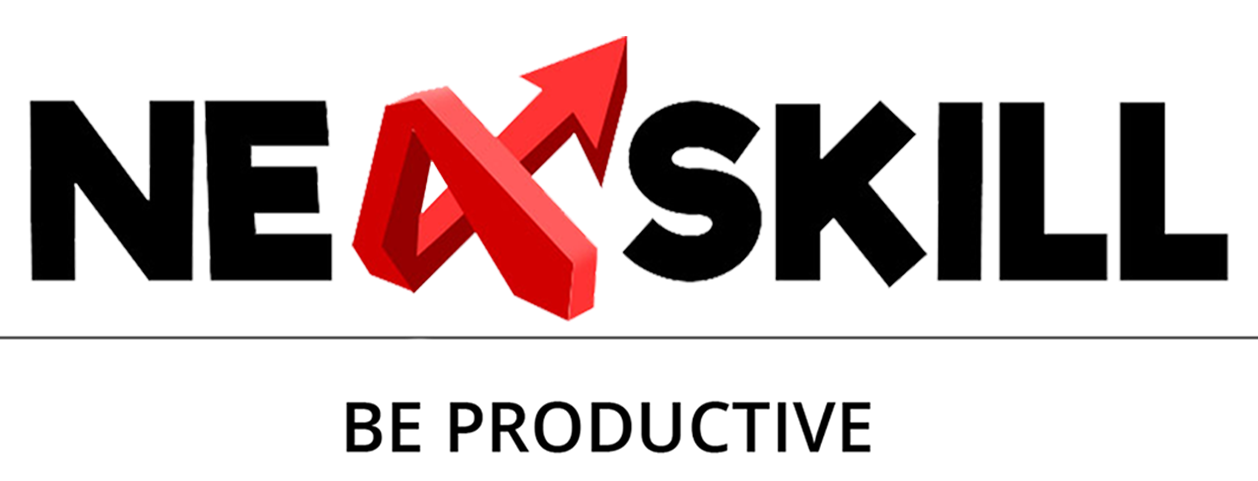
Nexskill is pleased to announce a FREE Python Training Session during the holy month of Ramzan. Focusing on providing individuals with a solid foundation in Python programming. This training session offers the opportunity to learn the basics of Python from scratch. Guided by the experienced instructor Muhammad Rehan over a total of 6 hours spread across Saturdays and Sundays.
Python Basics – Variables, Data Types, and Operators
Python, known for its simplicity and readability, is a versatile programming language widely used for various applications such as web development, data analysis, artificial intelligence, and more. Participants in the Nexskill Python Training Session will delve into the basics of Python programming, starting with understanding variables, data types, and operators in Python.
Introduction to Python and Its Syntax
Python’s straightforward syntax makes it an ideal language for beginners. Throughout the training session, participants will be introduced to Python’s syntax, emphasizing its clean and concise structure. They will learn the importance of proper indentation and the significance of colons in defining code blocks.

Variables and Data Types (Integers, Floats, Strings, Booleans)
Participants will gain knowledge and practical experience with different data types in Python during the training session. They will explore integers, floats, strings, and Booleans, understanding how to manipulate and store data efficiently using variables. By mastering the concept of data types, participants will be able to handle various types of information in their Python programs.
Basic Arithmetic, and Comparison Operators
Python provides a wide range of operators for performing arithmetic and comparison operations. In this session, participants will learn how to use basic arithmetic operators for calculations and comparison operators to evaluate conditions in their code. They will grasp the importance of operators in controlling the flow of their Python programs.
String Manipulation and Formatting
Strings are a fundamental part of programming, and Python offers powerful tools for string manipulation and formatting. Participants will learn how to work with strings, apply common string methods, and format strings using placeholders and formatting techniques. They will explore how to concatenate, split, and manipulate strings effectively in Python.
Control Flow and Functions in Python
Control flow structures and functions play a vital role in programming logic. Participants will dive into control flow mechanisms and learn how to create efficient, readable code using conditional statements, loops, and functions in Python.
Conditional Statements (If, Else, Elseif)
Conditional statements allow programmers to execute specific blocks of code based on certain conditions. In this training session, participants will master conditional statements such as if, else, and elseif to make decisions in their Python programs. They will understand how to create branching logic and handle different scenarios dynamically.
Loops (For Loops, While Loops)
Loops are essential for executing repetitive tasks efficiently. Participants will explore for loops and while loops in Python to iterate over sequences, lists, and perform specific actions until a condition is met. They will learn how to leverage loops for automation and data processing tasks.
Introduction to Functions and Defining Your Own Functions
Functions provide a modular and reusable approach to programming. Participants will be introduced to functions in Python and learn how to define their own functions to encapsulate logic and promote code reusability. They will understand the significance of function parameters, return values, and the role of functions in structured programming.
Scope and Lifetime of Variables
Understanding variable scope is crucial for managing data within a program. Participants will grasp the concept of variable scope in Python, including global and local variables. They will learn how variable lifetime is determined and how scoping affects the accessibility of variables within functions and code blocks.
Best Practices for Writing Clean and Readable Code
Writing clean and readable code is essential for collaboration, maintenance, and overall program efficiency. Participants will be guided on best practices for writing Python code, including proper naming conventions, code organization, commenting, and adhering to PEP 8 guidelines. By focusing on clean code principles, participants will enhance the readability and maintainability of their Python projects.
The Nexskill FREE Python Training Session in Ramzan offers a valuable opportunity for individuals to dive into the world of programming with Python. Through a structured curriculum, expert guidance, and hands-on practice, participants will develop essential Python skills and build a strong foundation for future programming endeavors.
Join Muhammad Rehan and fellow participants on Saturdays and Sundays to unlock the power of Python programming. Let this Ramzan be a season of learning, growth, and exploration in the world of technology. Embark on your Python journey with Nexskill and witness the transformative impact of mastering a versatile and in-demand programming language.
Don’t miss out on this exclusive opportunity to expand your skill set and embark on an exciting path towards becoming a proficient Python programmer. Ramadan Kareem!
